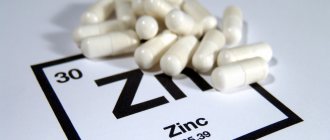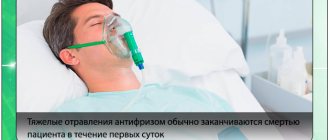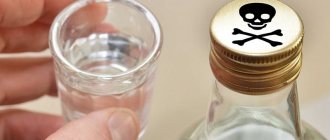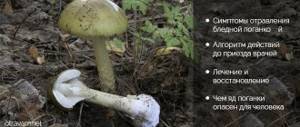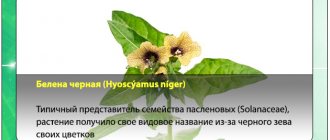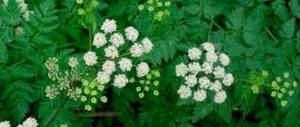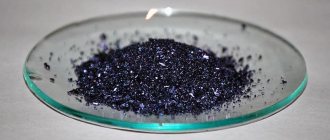Pickled cucumbers are a favorite delicacy of many people; few people would refuse a crispy and juicy cucumber with fried potatoes or stewed meat. However, it is unlikely that many people think that pickled cucumber poisoning is not such a rare occurrence.
Source: depositphotos.com
Why do cucumbers cause intoxication?
Fresh cucumbers, their benefits and harms depend on several factors. There are several reasons why cucumbers can become dangerous and cause poisoning.
- Use of chemical fertilizers during plant growth. If the soil and moisture are oversaturated with chemicals, their excess ends up in the fruit. Pesticides cause severe poisoning that can not only make you feel worse, but also lead to death. Potassium and ammonium nitrates, used to increase crop yields, can also appear dangerous to humans and cause nitrate poisoning.
- Pathogenic microbes and bacteria are found on cucumber peels. Therefore, before eating them, it is necessary to thoroughly wash the vegetables.
- Location of cucumber plantings in close proximity to highways. Exhaust gases supply still-growing vegetables with lead, which easily settles in cucumbers and tomatoes, and subsequently causes severe poisoning.
In cases where poisoning occurred after eating pickles and botulism began to develop, in addition to a solution of potassium permanganate, a 5% soda solution can be used to lavage the stomach. But this will still not be enough. Additionally, you will need to wash the intestines with an enema or a weak laxative that contains salt.
Is it possible to get poisoned by cucumbers?
Intoxication with fresh cucumbers:
- If they've gone bad. They lay in a warm place for a long time;
- If treated with pesticides. Some chemicals, together with water and soil, seep into the root system and are deposited in the fruits;
- Fertilizers improve the soil and crops, but at the same time they can turn vegetables into health hazards. For example, ammonium and potassium nitrate provokes nitrate poisoning;
- Poorly washed cucumbers. Even on the surface of an ecologically clean cucumber, bacteria hazardous to health can accumulate;
- Harmful environment. Those grown near the road, in places with dirty air, accumulate lead and other heavy metals that poison the body.
Signs of botulism
The initial signs of botulism appear in the form of nausea, vomiting and diarrhea accompanied by pain. Somewhat later, bloating, flatulence and constipation are characteristic. This indicates the onset of paresis of the gastrointestinal tract.
Neurological signs develop simultaneously or after gastrointestinal symptoms:
- decreased visual acuity;
- dilated pupils;
- dry mouth;
- difficulty swallowing;
- speech disorder;
- muscle weakness;
- headache;
- temperature increase;
- shallow breathing.
The disease is often accompanied by impaired functionality of the cardiovascular system, paresis and paralysis of individual muscle groups.
If treatment is not timely, severe complications may develop, such as pneumonia, atelectasis, purulent tracheobronchitis, serum sickness, mumps and many others. The most dangerous complication is respiratory arrest and asphyxia as a result of paralysis of the respiratory muscles.
The recovery period takes a long time. With timely and effective treatment, complete restoration of function occurs.
Cucumbers are dietary hypoallergenic vegetables, consisting of more than 90% water. Their composition is enriched with vitamins and beneficial micro- and macroelements. Due to its high taste, this vegetable has found wide use in cooking, both fresh, pickled and salted. However, eating cucumbers can often cause poisoning.
Video: what is the danger of cucumbers for humans
Read further:
The causative agent of salmonellosis
List of the best antibiotics for food and alcohol poisoning
Toadstool poisoning - symptoms, first aid and treatment
Soda poisoning - how to treat, proper preparation of soda solution for children and adults
Is it possible to use potassium permanganate in case of poisoning - how to properly dilute it for rinsing
Article rating:
( 2 ratings, average: 4.50 out of 5)
Share with friends:
You may also be interested in:
Fruits in case of poisoning: is it possible or not?
Overdose and tea poisoning - symptoms, treatment methods
What to do if you are poisoned by bananas
Is it possible to get lard poisoning: first aid and treatment
Symptoms of poisoning
Food poisoning can occur in both mild and severe forms. The incubation period ranges from several hours to several days. Usually, the faster the first signs appear, the more severe the form of poisoning.
- nausea,
- vomit,
- temperature increase,
- chills,
- minor pain in the abdominal area.
A mild form of food poisoning usually occurs without bowel movements.
In severe cases of toxic infection, the clinical picture is presented in the form of the following pronounced symptoms:
- nausea accompanied by belching with an unpleasant odor, heaviness in the abdomen;
- uncontrollable repeated vomiting, often mixed with mucus and bile;
- severe cramping or cutting pain in the epigastric region;
- frequent urge to defecate, diarrhea;
- there may be blood and mucus in the stool;
- chills, significant increase in temperature;
- blood pressure surges, headache, dizziness;
- general weakness, aches in muscles and joints;
- difficulty breathing;
- tachycardia.
Diarrhea and vomiting can cause dehydration. In this case, dry mouth appears, the skin becomes dry and irritated.
In severe cases of toxic infection, the clinical picture is presented in the form of the following pronounced symptoms:
How to extend the deadline
Several simple methods will help to extend the short storage of lightly salted cucumbers
- Place the cucumbers in a cool place after cooking;
- use cold water to pour the product;
- Do not cut off the ends of the cucumbers so that they last longer, but bringing them to readiness in this case will take longer;
- use clean containers for pickling;
- remove the product not with your hands, but with a fork - this will help avoid introducing excess bacteria;
- separate cucumbers by size - larger fruits need more time to absorb salt, which means they will retain their quality longer.
When pickling, lactic acid fermentation occurs in the first days , then it turns into butyric acid fermentation. To preserve the saltiness of cucumbers, you need to prevent the products from going to the second stage of fermentation.
If you track the moment, immediately close the jars hermetically and send them to a cold place , then the processes will stop and the fruits will remain lightly salted for several months.
Prevention
To reduce the risk of pickled cucumber poisoning, you should follow the following rules:
- Before pickling, soak the cucumbers for several hours in cold water, which should be changed several times - this will reduce the nitrate content;
- When pickling, thoroughly wash the cucumbers and jars;
- do not eat pickles from “bombed” jars, as well as those with altered organoleptic characteristics (color, consistency, smell, turbidity);
- Store pickles in a cool, dry place.
Video from YouTube on the topic of the article:
Poisoning with pickled cucumbers causes a persistent deterioration in a person’s well-being. The reasons for intoxication with canned cucumbers lie in the quality of the product and individual tolerance. Treatment of poisoning must begin immediately, following the instructions of a toxicologist or infectious disease specialist.
Treatment methods
Therapy in a hospital is performed if the following clinical picture is observed:
- The duration of symptoms is more than 2 days.
- Intense thirst.
- Problems with urine output.
- Severe muscle weakness.
- Shallow breathing.
- Blueness of lips and mucous membranes.
- Acute pain in the epigastrium.
The treatment program includes repeated gastric lavage, intestinal cleansing, administration of a mineral-vitamin complex, glucose solutions, sodium chloride and the following procedures:
- If the cause of poisoning is pathogenic microflora, antibiotics are prescribed after identifying the provocateur.
- For heavy metal intoxication, therapy involves the use of specific antidotes.
- Botulism is treated with a special serum.
- Nitrates are combated by intramuscular injection of ascorbic acid.
If the patient is quickly taken to the hospital and first aid is provided correctly, in most cases the prognosis is favorable.
How will the therapy work?
The patient will be provided with high-quality treatment in the hospital. There he will be prescribed vitamins and intravenous administration of glucose and salt solutions.
If there is heavy metal poisoning, special antidotes will be used.
Bacterial poisoning will require the inclusion of antibiotics. To do this, a drug to which microorganisms are particularly sensitive will first be identified.
If the cause of poor health is botulism (after poisoning with canned or lightly salted cucumbers), the patient will be given anti-botulinum serum.
Causes of poisoning
The sanitary and hygienic conditions under which cucumbers are harvested at home are very different from the conditions in production. In most cases, poisoning is associated with imperfect sterilization.
However, pickled cucumber poisoning can also occur for other reasons, for example:
- Cucumbers are one of the vegetables in which a large amount of pesticides accumulate, and various pesticides used to get rid of pests, containing chlorine and metals, can penetrate into vegetables. Nitrates accumulate in the soil, then enter the water, and then into plants, through which they enter the human body. This also includes different types of nitrate, which releases nitrogen when released into the soil. The more nitrogen in the soil and water, the faster and larger the harvest will be. According to statistics, approximately 40 thousand people die annually due to food poisoning with large amounts of pesticides. The price of vegetables, in most cases, does not in any way affect their quality and the likelihood of using nitrates.
- If cucumbers were grown close to roads, railroad tracks, or near industrial areas, they could absorb heavy metal salts, namely lead. Their accumulation in the body causes negative health consequences.
- Poisoning caused by bacterial microflora occurs due to violation of sanitary standards and preparation technology, as well as the terms and conditions of storage of finished products. When pathogenic microbes enter the human body, they produce toxins that negatively affect the functionality of many systems. One of the most dangerous bacteria is the botulism bacillus, as it affects the nervous system and can be fatal.
Note! Home sterilization will not be able to destroy the botulism bacterium, since it can withstand high temperatures - up to 100C0.
Is it possible to get poisoned by pickled cucumbers? We don’t think about it either when we salt them or when we eat them.
Who among us doesn’t love delicious, juicy and crispy pickles, which are used not only on their own, but also added to various salads. However, few people know that cases of poisoning from canned or pickled home-cooked foods make up a large percentage among patients in medical institutions.
In this article we will learn about the causes of food intoxication, what symptoms they are accompanied by, and also what to do if poisoning occurs.
Risk factors when using pickles
Cucumber poisoning can occur for various reasons.
The risk group includes consumers who use home preserves: not all housewives know the technology for preparing preserved cucumbers. Often, due to lack of time, vegetables are only washed with running water, without subsequent heat treatment, as a result of which, after eating canned food, a person ends up in the hospital.
Causes of poisoning from pickled cucumbers:
- Unopened vegetables contained increased levels of pesticides. Often, excess toxin levels are observed in batches of cucumbers intended for sale. Pesticides are added to protect crops from pests, but high concentrations of chemicals are dangerous for the human body. Chemicals have a negative impact on the functioning of the endocrine and nervous systems, brain and subcortical structures.
- Abundant fertilization of beds leads to a high nitrate content in cucumbers. Under certain conditions, nitrates can be converted into nitrites, which are very dangerous for humans: they block the saturation of cells with oxygen, contribute to the occurrence of hypoxia, and stimulate the development of pathogenic microflora in the intestines.
- The presence of pathogenic microorganisms on vegetables. Poisoning with pickled cucumbers can be caused by staphylococcus and botulism bacteria, which are preserved in the product due to violation of the rules of heat treatment during preservation.
- Presence of heavy metal salts. If the area where the cucumbers were grown is environmentally unfavorable, heavy metal salts (most often lead) accumulate in the vegetables. Heavy metals are not excreted from the body, but accumulate, causing chronic poisoning.
If the cucumbers are grown in your personal garden and are not stuffed with toxic substances, then if you follow the canning technology, the preparation will be safe even for small children. When buying pickles in a supermarket or secondhand at the market, you should not be sure of the quality of the purchased product.
How does poisoning manifest itself?
As we already know, whether you can be poisoned by pickled cucumber depends on some reasons. It is based on these reasons that the clinical picture of the disease develops.
Any poisoning can be mild, moderate or severe. In case of intoxication caused by pickles, symptoms may be caused by nitrates or botulism bacillus.
Differences in the clinical picture of poisoning:
| Nitrates | Botulism bacteria |
| Nausea, vomiting (5 times a day or more), repeated diarrhea | Visual impairment, double vision, eye movement disorder |
| Dizziness, headache, disorientation in space, disturbance of consciousness, retardation of speech and thinking | Difficulty swallowing, sore throat, breathing problems due to damage to the respiratory muscles, shortness of breath, feeling of dry mouth, change in voice tone |
| Blueness of skin and nails | Excessive excitability, muscle weakness - as the disease progresses, you have to hold your head with your hands, because she lowers herself to her chest |
| Severe agitation, stupor, coma, and in some cases death | Vomiting, diarrhea, or constipation |
| Pale skin and lack of facial expressions |
We recommend reading: Treatment of ovarian inflammation with folk remedies: methods at home, medicinal herbs, how to cure with decoctions
Symptoms caused by pesticide poisoning depend on the amount of pesticide ingested.
Important! You should not eat salted vegetables if you notice that the lid is swollen.
Restoration of the body
The duration of recovery of the body depends on the severity of the poisoning. With mild intoxication, recovery occurs quickly, within 5 to 7 days. In this case, no special treatment is required.
Severe intoxication requires hospitalization. In the early recovery period, it is necessary to carry out rehydration (oral and parenteral), diet therapy and symptomatic treatment.
To restore the body and, first of all, the functioning of the gastrointestinal tract, it is necessary to follow a diet. Diet principles :
- Meals are fractional. That is, portions should be small;
- Frequent meals, up to 7 times a day;
- You will be interested...
Period of manifestation of intoxication symptoms Heavy and irritating foods and dishes are excluded : fatty, salty, smoked, fried, baked goods and pastries, confectionery, milk, various sauces and mayonnaise, fresh vegetables and fruits, alcohol, coffee; - The diet includes: slimy soups, water porridge, vegetable broth, stewed and boiled vegetables, jelly, crackers, meatballs and steamed cutlets;
- Cooking methods: boiling, stewing and baking.
The diet is expanded gradually after stool normalization . To normalize the intestinal microflora, it is necessary to take medications with bifidobacteria and lactobacilli, and yoghurt.
First aid
Regardless of what caused the pathology, first aid for poisoning has the same instructions. Only a doctor can determine the severity of the disease and the cause that caused it, and therefore it is extremely important not to neglect medical care.
To help with cucumber poisoning, you need to carry out the following manipulations:
- rinse the stomach with clean water or with a weak solution of potassium permanganate;
- use sorbents - activated carbon, polysorb, smecta;
- replenish water balance - drink a lot of clean water, weak black tea;
- If you feel worse, call an ambulance.
If the disease is severe, treatment in a hospital is indicated. High-risk situations include:
- weakened state;
- pronounced symptoms;
- symptoms persist for more than 2 days;
- development of muscle weakness;
- decreased diuresis;
- presence of acute abdominal pain;
- blue discoloration of lips and mucous membranes.
In a hospital setting, gastric lavage is also used, as well as parenteral administration of various medications and a forced diuresis procedure, and for botulism, specific serum.
From the photos and videos in this article, we learned that even everyone’s favorite crunchy snack can be a source of health problems, and how to help a person in case of pickle poisoning.
Differences in the clinical picture of poisoning:
First aid for cucumber poisoning
After calling the medical team, the algorithm of actions is as follows:
- Empty the victim's stomach.
To do this, you need to perform gastric lavage by drinking chilled water (in an amount of at least 2 liters), followed by irritation of the root of the tongue, causing a gag reflex in the patient.
- Compliance with drinking regime.
To prevent dehydration, the patient is given tea, rosehip or chamomile decoction, and gas-free water. Rehydration therapy involves the use of Hydrovit or Regidron solution.
- The use of enterosorbents.
The use of Polysorb, Enterosgel, Sorbex or Atoxil will help eliminate the effect of toxins and speed up their removal from the body.
Signs of botulism
The initial signs of botulism appear in the form of nausea, vomiting and diarrhea accompanied by pain. Somewhat later, bloating, flatulence and constipation are characteristic. This indicates the onset of paresis of the gastrointestinal tract.
Neurological signs develop simultaneously or after gastrointestinal symptoms:
- decreased visual acuity;
- dilated pupils;
- dry mouth;
- difficulty swallowing;
- speech disorder;
- muscle weakness;
- headache;
- temperature increase;
- shallow breathing.
The disease is often accompanied by impaired functionality of the cardiovascular system, paresis and paralysis of individual muscle groups.
If treatment is not timely, severe complications may develop, such as pneumonia, atelectasis, purulent tracheobronchitis, serum sickness, mumps and many others. The most dangerous complication is respiratory arrest and asphyxia as a result of paralysis of the respiratory muscles.
The recovery period takes a long time. With timely and effective treatment, complete restoration of function occurs.
First aid and body cleansing
First aid is provided absolutely the same for different etiologies of the disease. In this case, measures must be taken to cleanse the body of toxins.
First aid should be provided when the first signs of poisoning appear. First you need to call an ambulance, after which you begin to carry out the following measures to cleanse the body:
- Stomach cleansing . At home, a restaurant method is used to lavage the stomach. The patient should be given plenty of water or saline solution (1 teaspoon of salt per 1 liter of water). Then induce vomiting by acting on the root of the tongue. The procedure is repeated several times until the intestines are completely cleansed of food debris;
- The use of absorbent drugs (Activated or White carbon, Polysorb, Enterosgel). These medications bind and remove toxins that have entered the intestines. They are excreted in feces;
- Drinking plenty of fluids is essential to relieve symptoms of dehydration . The liquid also helps remove toxins from the blood. It is necessary to give the patient water in small portions so as not to cause a new attack of vomiting, but often. You can drink sweet tea, clean drinking and mineral water without gas. A special solution called Regidron will help restore the water-salt balance (the powder with the drug must be diluted in boiled and cooled water according to the instructions).
If the patient is unconscious, then I determine the presence of a pulse and breathing. When they are preserved, the person is placed on his side and his condition is monitored until the doctors arrive. If there is no pulse and breathing, then begin cardiopulmonary resuscitation (indirect cardiac massage and artificial respiration). Resuscitation measures are carried out until vital signs appear or until doctors arrive.
How does cucumber poisoning occur?
Crispy pickled cucumbers are a favorite delicacy of many people, but not everyone knows that this product is hazardous to health. Statistics show that canned cucumbers may contain harmful substances and dangerous microbes that have an extremely negative impact on human health.
This is due to the fact that the home conditions in which the process of pickling vegetables takes place do not meet sanitary and hygienic requirements: the jars are sterilized over steam, and ordinary running water is used to wash the products. Due to the lack of complete sterilization, cucumber poisoning can occur.
Symptoms of cucumber poisoning
Poisoning with fresh cucumbers has a number of features. Initially, the victim may experience the following clinical signs:
- stomach pain appears;
- feeling of nausea; then vomiting occurs;
- flatulence and diarrhea appear;
- a decrease in blood pressure causes pallor of the skin;
- body temperature rises.
If food poisoning with cucumbers occurs as a result of the high nitrate content in the vegetable, then the clinical picture is complemented by the following symptoms:
- severe cyanosis (blue tint) of the skin develops;
- the patient is in a state of nervous excitement;
- trembling in the limbs can turn into convulsions;
- vomiting becomes more frequent to such an extent that the victim cannot even swallow water;
- Fainting and coma are possible.
After calling the medical team, the algorithm of actions is as follows:
Let's work together to make the unique material even better, and after reading it, we ask you to repost it on a social network convenient for you. net.
Consequences
If cucumber poisoning occurred as a banal food poisoning, serious health problems in the future can be avoided. But if metal salts enter the body, and the antidote is not administered in a timely manner, the consequences will be disastrous:
- extensive damage to the kidneys, heart, liver and lungs,
- sometimes fatal.
If botulism develops, the nervous system, respiratory organs, and the entire body as a whole will be seriously affected. And in the absence of specialized help, death here is almost inevitable.

